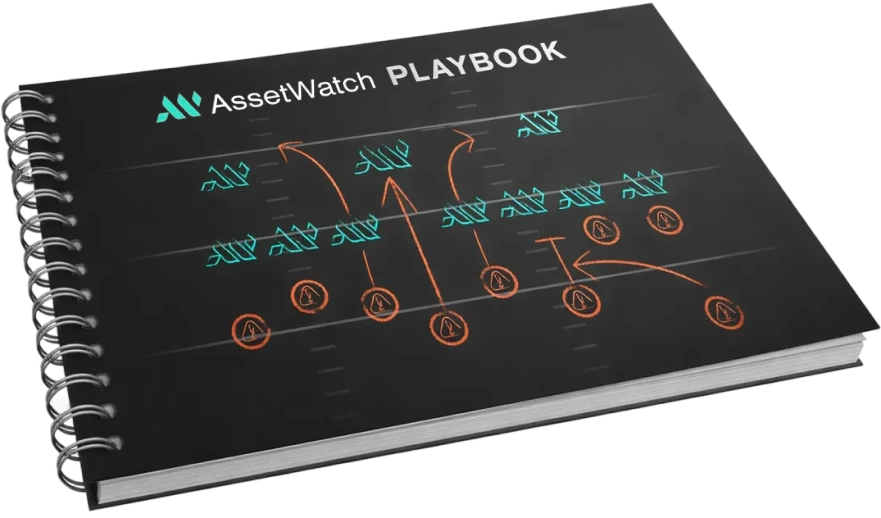What Automation and IoT Really Mean for the Future of Mining Equipment Maintenance
Automation and Internet of Things (IoT) technologies simplify maintenance in mining operations. Here’s how they're empowering teams to do more with less.

Automated diagnostics. AI-driven maintenance. Internet of Things (IoT)-enabled operations. These buzzwords are everywhere. Take a walk through any mining expo or trade show, and you're bound to hear these phrases repeatedly. But how are they relevant to your mining operation and team?
If you perceive a gap between technology talk and on-the-ground value, think again. Advanced technologies can have a profound impact on everything from working conditions to the bottom line. With IoT-connected mining solutions surpassing 1.3 million units in 2023 and a projected $7.8 billion market for IoT in mining by 2027, mining facilities are increasingly embracing digitalization and automation for enhanced efficiency—without disrupting operations.
In this blog post, we'll explain how automation and the Internet of Things (IoT) can help your team simplify mining equipment maintenance and improve performance and productivity over time.
IoT sensors: real-time eyes on equipment health
Mining equipment operates in some of the harshest, most remote environments in the world. Waiting for the proper part or maintenance specialist has the potential to upend the mining operation and everyone's livelihoods tied to it. Having a safeguard like IoT sensors protects your operation from maintenance predicaments by acting as real-time "eyes and ears" on critical assets such as crushers, pumps, motors, bearings, gearboxes, and conveyors.
By collecting and transmitting a continuous stream of vibration and temperature data, these sensors detect subtle changes in machine performance, often weeks before a breakdown. Maintenance teams no longer need to rely on rigid, time-based maintenance schedules (like changing out a pump seal every 1,000 hours). Instead, they receive alerts and can respond based on actual wear and performance.
Automation: from reactive to condition-based maintenance
Even with sensors monitoring mining assets, the value of data depends on how quickly and effectively data insights are implemented. This is where an AI-powered automated solution can help with data overload. Raw sensor input translates into smart, real-time alerts, with work orders automatically logged and tracked in your CMMS.
Behind the automation, condition monitoring engineers (CMEs) play a crucial role. These specialists interpret complex data patterns, validate sensor alerts, and ensure that insights lead to effective, timely action. With automated systems handling the constant data flow, CMEs can focus their expertise on identifying root causes, providing prescriptive recommendations, and helping teams prioritize tasks and optimize their maintenance strategies.
For instance, if a fan motor's vibration begins trending toward a known failure threshold, the system automatically flags the change. The CME then analyzes the data, verifies there’s an issue, alerts the team, and helps guide resolution during scheduled downtime, preventing lost production time and costly emergency repairs.
Automation doesn't replace your people. It just gives them better tools. As your CME empowers your team with real-time, AI-backed insights, the entire maintenance operation becomes faster, smarter, and more precise.
Smarter diagnostics: getting to the root cause faster
Mining equipment failures rarely announce themselves with apparent symptoms. Complex machinery like conveyor belts, SAG mills, and ventilation fans often experience gradual declines before a major issue surfaces.
Having your team wait around for a system failure is not a sustainable long-term strategy. Fortunately, with a holistic view of asset health enabled by smarter diagnostics, your team will be able to not only prevent sudden failures, but also pinpoint root causes early in the failure curve.
Integrating historical and real-time vibration, temperature, oil analysis, and other condition data in an AI-powered platform can reveal subtle anomalies and point to root causes that might otherwise go undetected. This holistic view will allow your team to avoid a pattern of repeated repairs that don’t touch the underlying problem—thus improving both first-time fix rates and your facility's mean time to repair (MTTR).
With smarter diagnostics, your technicians can stop chasing symptoms and start addressing problems at their source while minimizing unplanned downtime. Combined with automated alerts and expert validation, this approach accelerates repair cycles and makes your maintenance program more proactive, efficient, and cost-effective.
Optimizing maintenance resources and inventory
Smarter maintenance isn't just about fixing things faster. It's about planning smarter from the start. With automation and IoT delivering continuous insights into equipment health, mining maintenance teams can shift from reactive firefighting to proactive resource management.
By knowing exactly when a component is trending toward failure, your operation can:
- Schedule work precisely when needed, reducing unnecessary maintenance and freeing up technicians for high-impact tasks
- Extend asset life by minimizing wear and tear and avoiding premature part replacements, saving costs without sacrificing reliability
- Forecast spare parts demand based on real-time and predictive analytics, ensuring the right components are in stock when they're needed most
This data-driven approach leads to fewer last-minute orders, leaner inventory management, and reduced downtime due to waiting on parts. Instead of overstocking "just in case" or rushing to source critical components, your supply chain becomes more strategic and guided by actual asset behavior.
Ultimately, optimizing resources with automation and IoT doesn't just support maintenance. It strengthens operational resilience across the entire mine.
Remote monitoring for remote operations
For mining operations in remote, hazardous, or logistically challenging areas, sending technicians on-site for routine inspections or diagnostics can be costly and sometimes risky. Remote monitoring provides a consistent, always-on view of equipment health for mines that span vast distances or operate around the clock. It’s a powerful tool for both safety and efficiency and ensures that your maintenance strategy is as agile and scalable as the operation itself.
With a centralized, cloud-based predictive maintenance platform, your team can:
- Monitor hundreds of critical assets across multiple locations, all from a central dashboard
- Receive real-time alerts and diagnostics without needing to be physically on-site
- Reduce unnecessary site visits to minimize travel time, exposure to dangerous conditions, and associated costs
A digital approach enhances safety by limiting exposure to hazardous environments and empowers maintenance teams to make faster, better-informed decisions, regardless of where the asset is located.
Final thoughts: let tech do the heavy lifting
Automation and IoT aren't here to replace your mining maintenance teams. They're here to empower your team. By automating time-consuming tasks like manual data collection and reducing the need for routine inspections, these technologies give your people the tools and insights they need to make faster, more informed decisions.
The result? Equipment stays healthier longer, improving performance and reliability while minimizing downtime. Plus, maintenance teams can focus their expertise where it matters most.
Buzzwords don't define the future of mining maintenance. Smarter strategies, safer operations, and stronger outcomes do. With automation and IoT already delivering real results across the industry, that future is no longer on the horizon. It's happening right now.
See what it can do for your mining operation
Want to see what proactive, IoT- and AI-powered maintenance looks like for your operation? Book a free assessment with AssetWatch and take the first step toward reducing downtime and maximizing asset life.
Upcoming Predictive Maintenance & Condition Monitoring Events
Discover the latest strategies in asset reliability and downtime reduction—browse our featured sessions below or view all upcoming events.



Predictive Maintenance Resources
Unlock expert strategies for better asset health—read our featured guides below or browse the full knowledge center.













